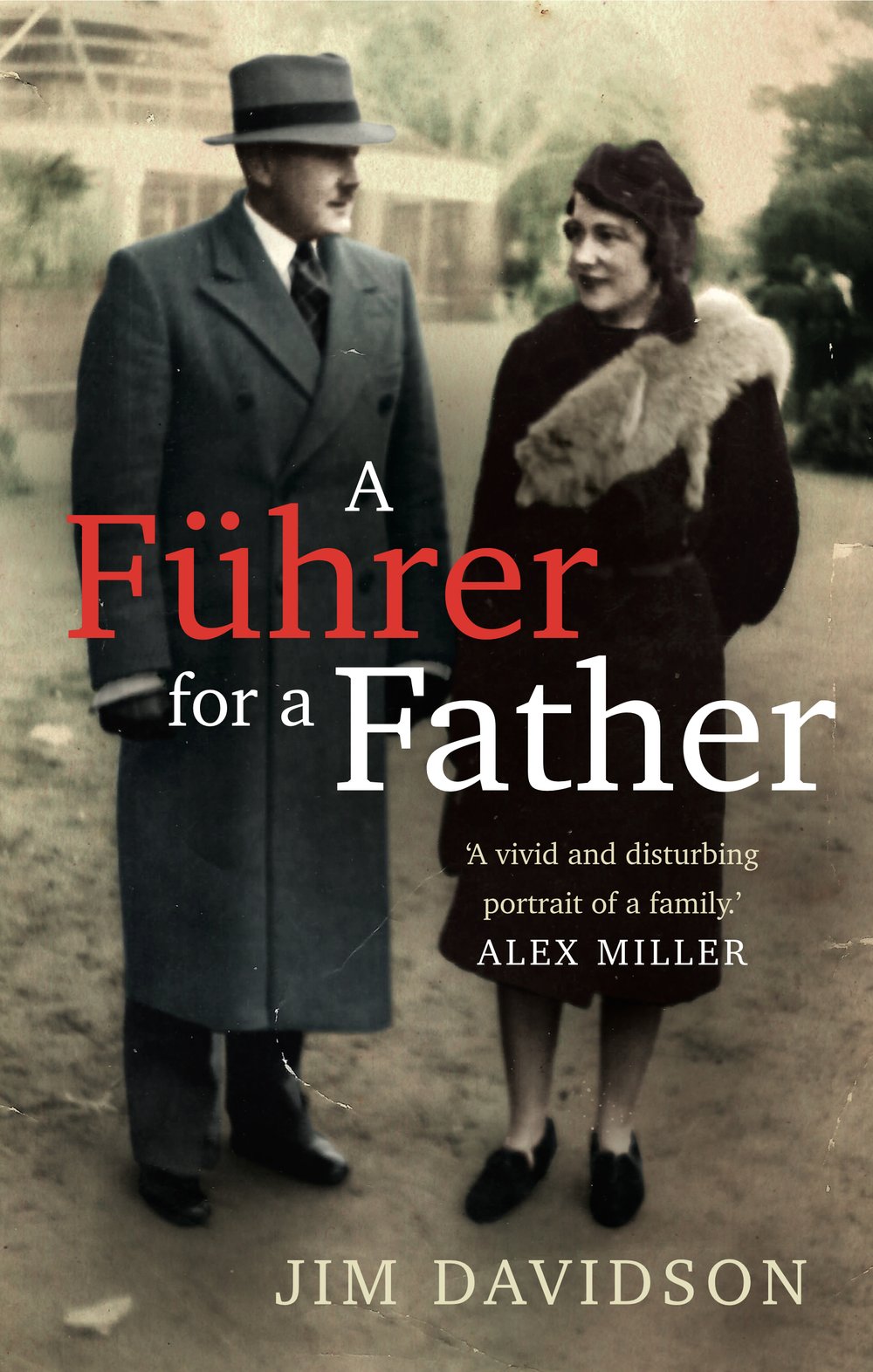Peter Cochrane launched Jim Davidson's A Führer for a Father at Gleebooks on the 30th of August 2017 As some of you will know it’s quite a day for Gleebooks. The original bookshop - what is now the second-hand bookshop at 191 Glebe Point Road - is closing down and as David Gaunt has said in his newsletter it feels like the end of an era. But the good news is that Gleebooks goes on, here at 49 Glebe Point Road and what is now an institution will continue to be the fabulous independent bookseller that it’s been for some forty years. The announcement set me thinking. I was reminded that this building was formerly owned by the Laming family. It was acquired by David and his partner in 1992, some 25 years ago, and the books and writers program upstairs, here, where we meet, has been going since 1994. Formerly the building doubled as a second-hand furniture and bric-a-brac shop downstairs called The Dealatorium and upstairs, this space, was Lamings Golden Gloves Boxing Gymnasium replete with a boxing ring, punching bags, sweat boxes, apparently, and a picture of the Queen on the wall. Walking past the place you could smell the liniment and other embrocation applied to the punished body for the relief of bruising and strains. But that was then. Since that time, a quarter of a century, the building has been devoted to the promotion of literature, to great writers and great books and tonight is no exception. Jim Davidson is a distinguished historian and biographer, a former editor of Meanjin and an Opera critic, a counter-factual theorist – I’ve seen that essay Jim – and a practitioner of the liberal assumption he learned at Ormond College – that an educated person should be as well informed as possible on as many subjects as possible. He taught history at Victoria University, and he has travelled widely in a way that is mostly consistent with his transnational interests – notably the British empire in the southern hemisphere and the ‘colonial Hitler’s’ that wielded power at so many levels in those settler regimes. He’s had a long familiarity with Tasmania and he’s also spent a good bit of time immersed in French culture, while he was researching and writing his first biography, Lyrebird Rising: Louise Hanson Dyer of Oisseau Lire (1994) which, like several other books (including his UNSW Press biography of WK Hancock), won big prizes. He has written books on tourism in Australia and more recently a book about Australian postcards. In 2012, he was appointed AM for a life of ‘exemplary irregularity.’ And now he’s written a memoir: A Fuhrer for a Father and, I cannot tell a lie, it is very good. My first thought when I saw Jim’s title was those lines in Sylvia Plath’s poem Daddy – her reference to ‘the men in black with a Meinkampf look and a love of the rack and the screw.’ And my response when I read the text was to think of Germaine Greer’s Daddy We Hardly Knew You, another masterwork in the pursuit and the hunting down, as it were, of Daddy. But beyond the pursuit itself, there’s not a lot of similarity because Greer, I think, was more intent on unmasking her father, metaphorically killing him, whereas Jim, as I read him, is more intent on understanding his father and, indeed, himself. I detect a melancholy here that you won’t find in Greer. There is a moment where, late in the book, Jim wonders why it is that he so quietly persevered, hoping, I think, for some sort of reconciliation with this man. Some readers will wonder that too, given the abuse dished out by this fuhrer of a father. This bottled up, unpredictable, manipulative, sadistic, tyrannical, miserably mean, weird & scary martinet of a man; a suburban Henry VIII. There’s another moment, too, in the final pages of Jim’s memoir when there’s a conversation going at a dinner party and there’s talk about family. And someone unnamed says to Jim: ‘That’s a terrible thing to say about your father.’ And Jim replies: ‘No, that’s a terrible thing to have to say about your father.’ It’s probably trite to point out that trauma can produce great art, great literature. But it’s true, and if I can refer back to Laming’s Boxing gymnasium as metaphor, what we have here, Jim’s book, is the record of a mere boy who went 15 rounds with a mean heavyweight, and triumphed. But it was a long fight….
